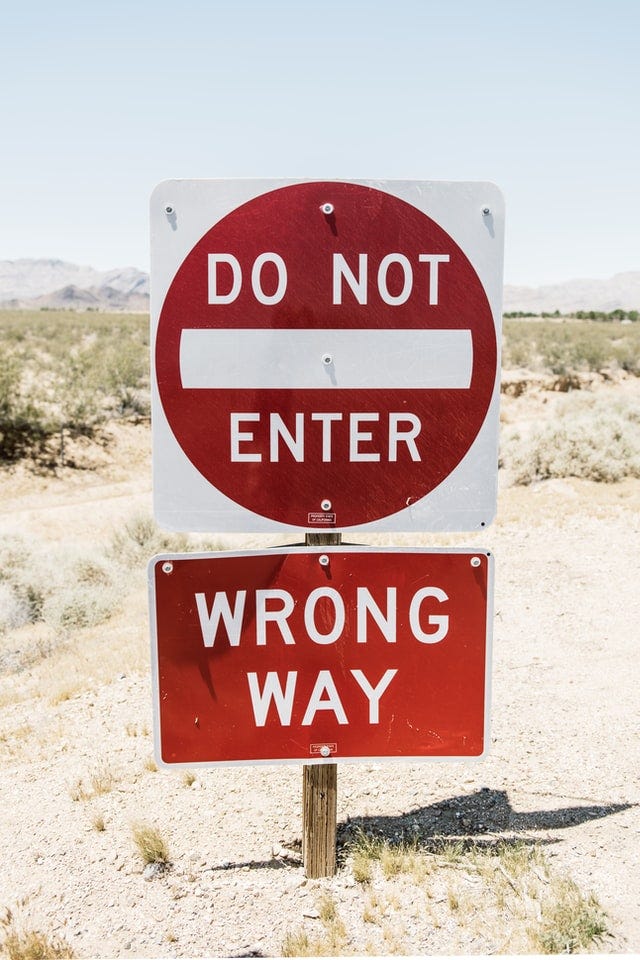If someone were to ask you what the opposite of compassion is, what would you say? Cruelty? Mercilessness? What about self-worth? The opposite of self-worth would be unworthiness, yes?
There is a Buddhist teaching about far and near enemies which I have recently encountered and I want to share it with you all because I think it is an incredibly useful concept to bring to your integrity practice.
Far enemies are the obvious opposites of desired emotions or virtues. If your goal is to be a compassionate human and you engage in cruelty, you, and likely anyone affected, are going to know clearly that you missed the mark on your compassion goal. Similarly, if you truly desire to feel worthy but are plagued with feelings of unworthiness, that you are trapped in the opposite of your desired state is fairly straightforward to figure out.
Ditto, if you want to be emotionally self-sufficient but are drawn repeatedly into co-dependency; if you want to feed your creativity but feel disconnected from your generative, authentic self; if you want to develop discipline and self-control but are seemingly unable to master your compulsions or willfulness. All of these are clear signs of the far enemy, signalling “Dead End”, “Do Not Enter”, and “Wrong Way”.
We know without a shadow of a doubt that when it comes to far enemies you can’t get there from here.

Near enemies are a much subtler and sneakier challenge. They so closely mimic our desired emotion or virtue we can trick ourselves into thinking we are achieving what we aspire to while all along the near enemy is undermining our conscious intentions from within.
Take compassion. Buddhist teacher Jack Kornfield explains the near enemy of compassion like this:
The near enemy of compassion is pity. Instead of feeling the openness of compassion, pity says, “Oh, that poor person. I feel sorry for people like that.” Pity sees them as different from ourselves. It sets up a separation between ourselves and others, a sense of distance and remoteness from the suffering of others that is affirming and gratifying to the self. Compassion, on the other hand, recognizes the suffering of another as a reflection of our own pain: “I understand this; I suffer the same way.” It is empathetic, a mutual connection with the pain and sorrow of life. Compassion is shared suffering.
Sanjna Singh, in an insightful article on how attendance to the near enemy teaching can dramatically improve our possibility of providing real allyship in social struggle, writes, “The near enemy is insidious because rather than connecting people, it serves to further separate them. Near enemies infiltrate every corner of our minds and can corrode the basis of our actions, including our desire to help.”

So, I got to thinking, what is the near enemy of integrity?
Like a multiple-choice test, it is easier to think about the far enemy first, thus eliminating it from our list. However, I don’t think there is a single far enemy of integrity. Integrity is a multi-faceted practice, so we must look at it from multiple directions to comprehensively understand its various near enemies.
Integrity is not a thing you are or have, remember. It is a thing you do repeatedly— a habit or practice. Our working definition of integrity here at Let Your Life Speak is:
discerning what is right and what is wrong,
acting on what you have discerned, even at personal cost, and
stating openly that what you are doing is based on your discernment.
First, let’s talk about discernment. Discernment is “the quality of being able to grasp and comprehend what is obscure; the ability to judge people and things well; to perceive or recognize the difference or distinction between (two or more things).” Discernment takes time, and so expediency, choosing what is quick and easy, is the far enemy of discernment. The sneaky near enemy of discernment is rationalization. Anti-slavery activist James Johnson writes about the difference between rational decision making, or discernment, and rationalization:
In a rational decision we apply reason and our values to a situation prior to deciding what is the smart and right thing to do. Rationalizations work very differently. We rationalize because we have already decided what we want to do or have already done it and we need a plausible story to tell ourselves and others to conceal our moral compromise. Thus, when we rationalize we are essentially reasoning backwards – starting with the conclusion and inventing reasons that would lead to it.
A common rationalization that consistently undermines integrity is focusing on our “good intentions” rather than taking responsibility for our lack of discernment or the unintended impact of our actions. “I meant well” or “I didn’t mean to” are a way to build a story that protects our ego from the demands of integrity.
When we look at the next facet of our integrity practice, which is acting on our discernment, even at personal cost, the far enemy is inaction or acting in a way we know betrays our beliefs. There is obviously no integrity in choosing to do what you know is wrong, but equally, not doing what you know is right clearly undermines your integrity practice.
But what do we do that looks and feels like “doing what’s right” but actually protects us from the possible conflict or discomfort of doing what is right regardless of what anyone else around us is doing? That near enemy is placation or people-pleasing. It is “going along to get along”, or “I don’t want to make waves”. It is focusing on fitting in, which undermines both integrity and true belonging.
Finally, we come to “stating openly what you are doing based on your discernment”. As I’ve written before, “if you were to make a point of explaining the moral value, from your perspective, of every choice you made over the course of your day then you would quickly come to understand, as was so hilariously depicted in The Good Place, why everyone hates moral philosophers.”
Integrity does not require us to constantly recite publicly every bit of discernment we’ve engaged in. So many of the private, low-stakes moments upon which our integrity is built are actually a test to see if we can do what we know is right even when no one is paying attention. Where the far enemy appears is when the stakes get higher— in relationship, in community— and things are happening that we know are wrong. Not only does our integrity require us to do what is right, but we have to be willing to say out loud that what is happening is not okay. Keeping our mouths shut in the face of what we know is wrong is the far enemy of stating publicly what we know is right.
So, what is the near enemy to this final facet of integrity? It is righteousness or sanctimony. If your public stances are tinged with the dehumanizing judgment of other people then you are subtly undermining your integrity practice. If integrity is a practice then everyone has the potential to succeed or fail at it every day. Your discernment or action, as just as it may be, does not make you incontrovertibly “good” any more than someone else is inherently “bad”.
A related near enemy has to do with stating our disagreement or disgust about something that is wrong without actually taking any concrete action against it. This is called virtue-signaling. Whether or not we have discerned that the thing we oppose is morally wrong, we’ve skipped the step of actually putting ourselves at risk. This bolsters our persona or sense of identity as “one of the good ones” while sneakily preserving our safety and the status quo.
Questioning our motivations and actions is tough, ongoing, humbling work, my friends. It certainly is for me. I’m not much of one for rationalizations or people-pleasing, but do I struggle against my own tendencies towards righteousness? Absolutely, I do. And in the age of social media, virtue-signaling is so constant as to seem to be simply what we do. I have to remind myself over and over again that posting to social media about the things I take issue with isn’t changing anything. Given the perspective siloes created by algorithms, it’s not even any kind of risk. It’s just me preaching to the choir. Where’s the integrity in that?





Jack Kornfield was my meditation teacher at Spirit Rock early on. A very wise person. I considered "dishonesty" or "depravity" to be the far enemy of integrity and "righteousness" to be the near enemy but when it means conforming to established norms of right and wrong, not when it means faithfulness to one's own moral code derived through discernment. It gets tricky, obviously.
Wow, I really appreciate this intricate breakdown, and now understand virtue-signalling for what it is. Preaching to the choir helps noone tangibly, although, I would say that it does feel nice to know there are others who care about what you care about? Still, better to know that action is being taken. I have been stuck in the echo-chamber and virtue-signalling class ever since social media came into my life. Now I know the antidote. I am going to stop relying on my expression of horror as a change-maker and to take more steps, to practice DOING more, to take more action, going forward. Thank you for a wonderful piece.